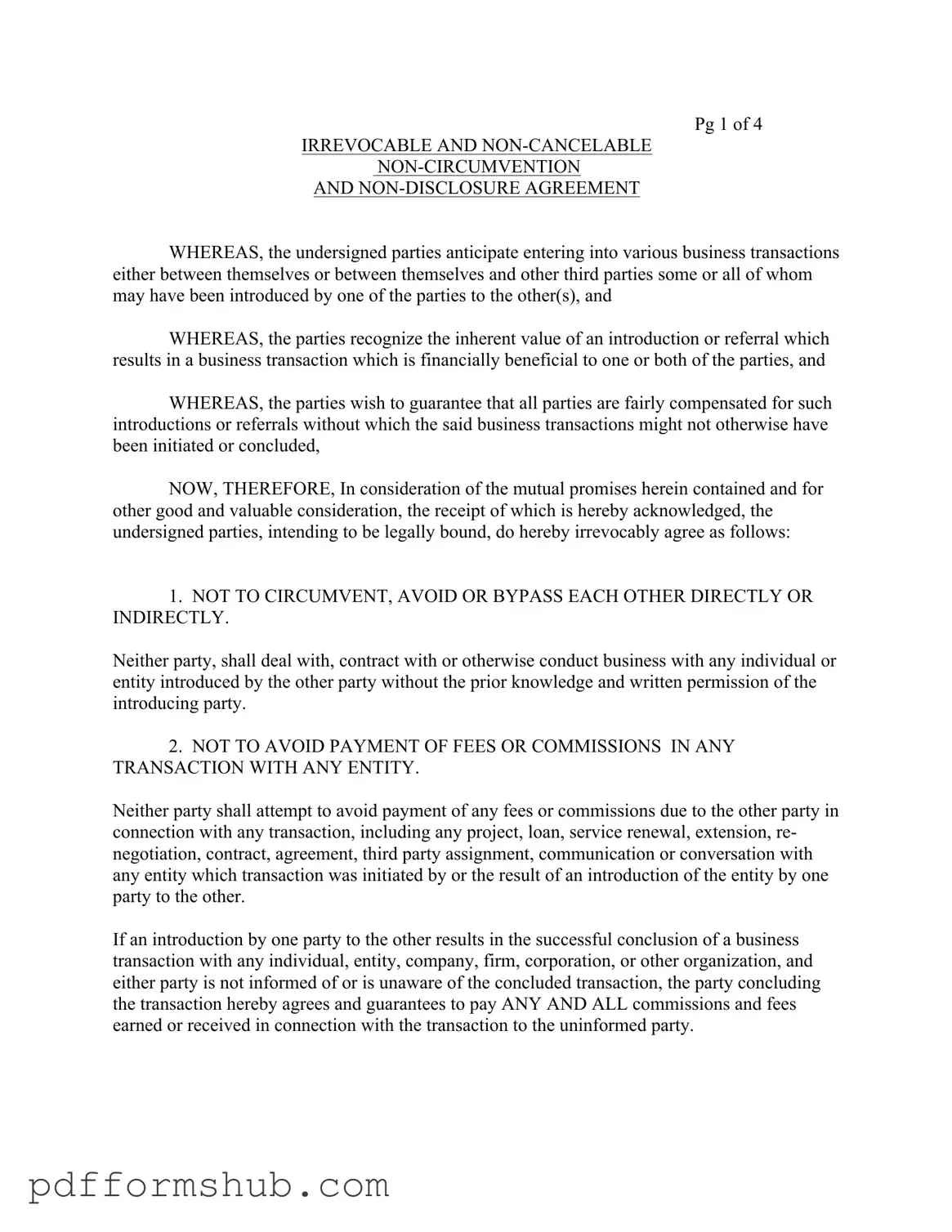Fill in Your Ncnd Form
The Non-Circumvention and Non-Disclosure (NCND) form is a legal agreement designed to protect the interests of parties involved in business transactions. It ensures that introductions made between parties are respected and that any confidential information shared remains secure. Understanding the implications of this form is crucial for anyone engaged in business dealings where introductions play a significant role.
To ensure your interests are protected, consider filling out the NCND form by clicking the button below.
Customize Form

Fill in Your Ncnd Form
Customize Form

Customize Form
or
Free PDF Form
Short deadline? Complete this form now
Complete Ncnd online without printing hassles.